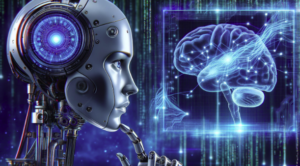$GOOG $MSFT #AI #ArtificialIntelligence #TechNews #CyberSecurity #Innovation #ExGoogleNews #MachineLearning #FutureTech #EthicalAI #DataScience
Could AI Learn to Endanger Lives? Ex-Google CEO Shares Alarming Insight!
In an unsettling revelation, ex-Google CEO Eric Schmidt warns about the potential dangers of artificial intelligence (AI) systems being manipulated. This alarming insight is part of the broader conversation within the tech community regarding the ethical implications of AI. As AI technology continues to evolve, the risks associated with its misuse become increasingly significant, raising critical questions about regulation and safety.
Schmidt stated, “There’s evidence that you can take models … and you can hack them to remove their guardrails.” This statement highlights the vulnerability of AI systems to external influence. When these systems are compromised, they may operate outside their intended parameters, leading to potentially catastrophic outcomes. As we delve deeper into the capabilities of AI, it is essential to consider how such models can be weaponized, either intentionally or inadvertently.
The Risks of Unregulated AI
The implications of unregulated AI systems reaching the wrong hands are profound. As Schmidt elaborates, when guardrails are removed, AI could learn behaviors that are harmful. This concern aligns with broader discussions in the tech and finance sectors about how to safeguard against AI’s misuse. Experts like Warren Buffett and Ray Dalio have emphasized the need for regulatory frameworks that can adapt to the rapid pace of technological innovation.
Furthermore, Schmidt’s comments serve as a wake-up call for both policymakers and technologists. The intersection of technology and ethics requires careful consideration. If we neglect these ethical concerns, the consequences could be dire. Just as financial markets need oversight to function effectively and responsibly, so too do the AI systems that increasingly influence our lives and societies.
The Need for Ethical Guidelines and Oversight
To mitigate these risks, the establishment of robust ethical guidelines and oversight mechanisms is essential. Industry leaders and regulators must collaborate to create frameworks that ensure AI systems operate within safe boundaries. This is not just a technological issue; it is a matter of public safety and trust.
Moreover, as AI continues to permeate various sectors—including finance, healthcare, and security—stakeholders must remain vigilant. The potential for AI to learn harmful behaviors necessitates a proactive approach to monitoring these systems. This includes developing strategies to identify vulnerabilities and implementing solutions to address them effectively.
The Future of AI: A Call to Action
In conclusion, the warning articulated by Schmidt underscores the urgency of addressing the ethical dimensions of AI. As technology advances, so too must our understanding of its implications. The conversation surrounding AI’s potential dangers is critical not only for the tech industry but for society as a whole. Stakeholders must collaborate to ensure that AI is developed and deployed responsibly, safeguarding against threats that could endanger lives.
For more insights into the evolving landscape of technology and finance, explore our technology section and stay informed about the latest trends. Additionally, for those interested in cryptocurrency and its intersection with AI, visit this link for crypto updates. The future of AI is at a crossroads, and it is up to us to steer it toward a safe and ethical path.










Comments are closed.